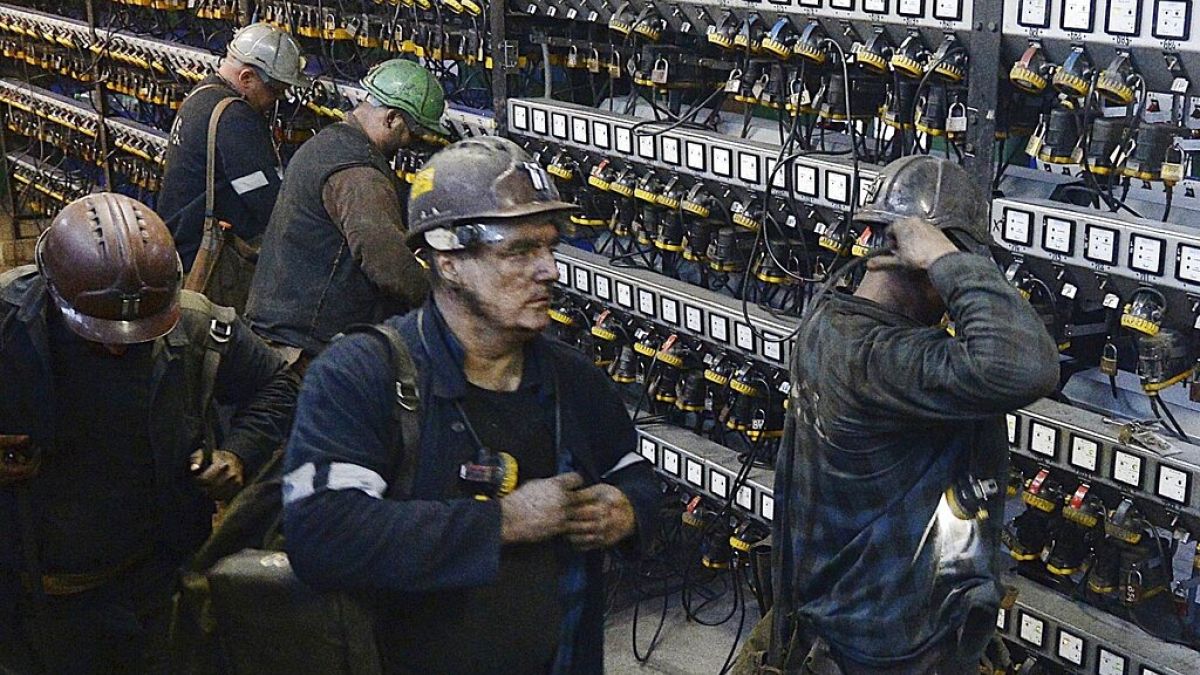Some believe President-elect Joe Biden will be more critical of Poland than Donald Trump
In the southern Polish province of Silesia, coal is praised as “black gold”.
Mines have shaped the landscape and the culture of this region, while turning Poland into the main producer of coal in the European Union.
Half a million workers depend on this industry, including more than 80,000 miners.
Marcin Lichota has been digging out the precious fossil fuel for the last 10 years. But like many other miners, he is worried about his future, as the Polish government vows to close all the country’s mines by 2049.
"Everyone is afraid and wonders if they will work here until retirement," said the 45-year-old. "Requalifying will be a problem. Everyone would like to work with a sense of security, in order to make plans and build a future, and not be threatened every year, as we are, that the mines will close, wondering what happens next."
The European Union is pushing Poland to crack down harder on its coal industry. This pressure could soon intensify, as US President-elect Joe Biden enters the White House with a greener agenda than his predecessor.
For mining union leader, Bogusław Hutek, the departure of coal-supporter Donald Trump represents a symbolic change, rather than a practical one.
"In a way, we felt better, and we liked [it] when Donald Trump said clearly that we should preserve coal," says Hutek.
However, he says that neither Trump nor Biden will change the aims of the EU to reduce CO2 emissions by 55% in 2030 and be climate neutral in 2050.
Poland’s reliance on coal comes at a cost. Coal power plants, which generate 75% of Poland's electricity, as well as the burning of coal for heating, result in air pollution and environmental degradation.
Thirty-three of the 50 most polluted cities in the EU are found in Poland. But climate activists like Patryk Białas are counting on the new US administration to help change that.
"It will be very important to improve our Polish climate policy, to be much more ambitious and to reach faster the Paris agreement targets," he said.
According to Tomasz Pugacewicz, international relations professor at Jagiellonian University, Joe Biden’s influence on Polish politics will depend on his ability to collaborate with the ruling Law and Justice party.
A party he publicly accused of undermining the rule of law. Biden was critical of some Eastern European countries during the US presidential debates.
He said: "You see what is happening in everything from Belarus to Poland to Hungary and the rise of totalitarian regimes in the world."
"I expect that the Biden administration will be more critical. Maybe at the beginning they will use diplomatic channels to influence the Polish government but if that fails, they will use public statement to put pressure on the current Polish government," Pugacewicz told Euronews.
The United States also has a vested interest in Poland’s exit from coal, as Warsaw aims to develop nuclear power plants with American technology.
This, combined with the EU’s climate-neutrality targets, will almost certainly spell the end of Polish coal before the mid-century.


